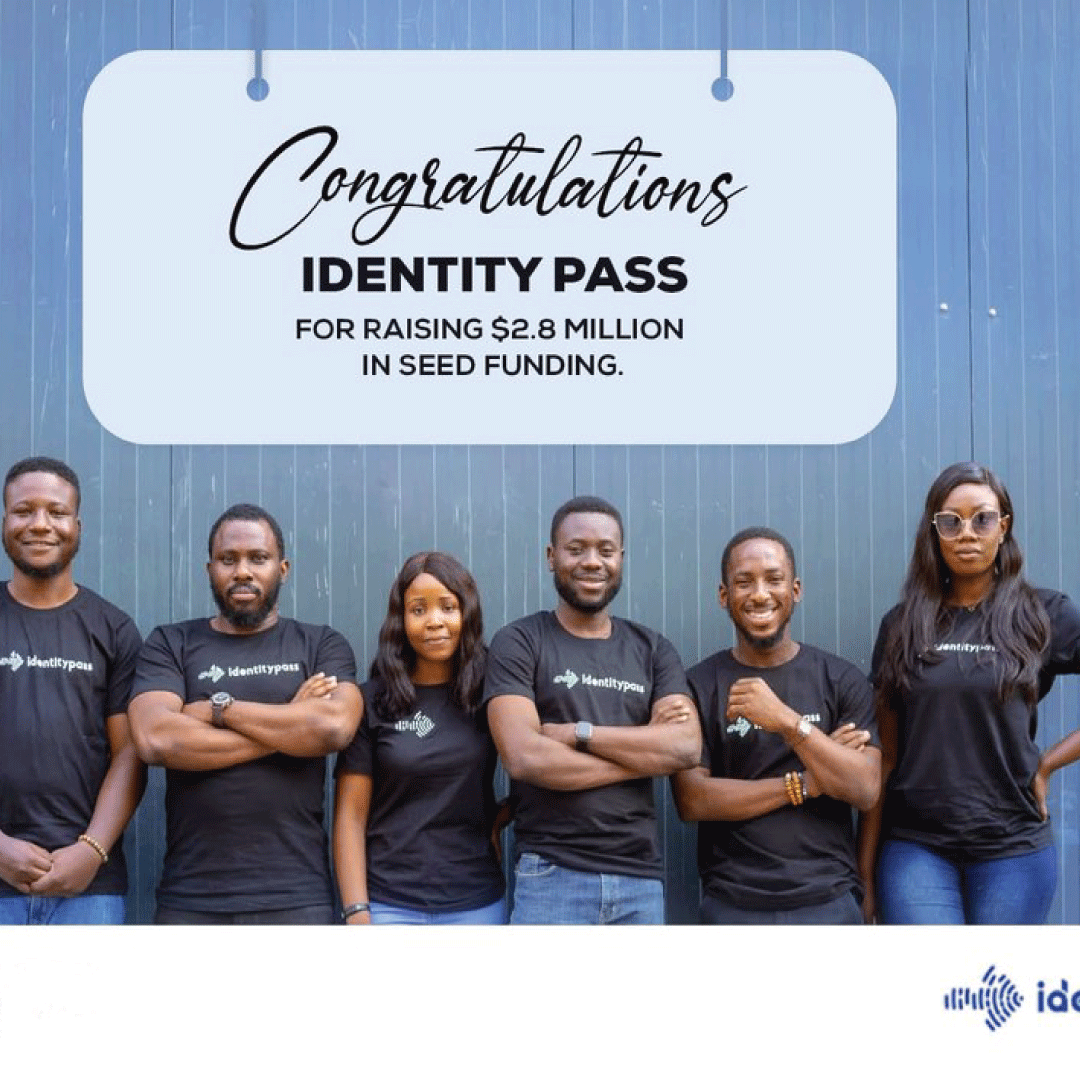Identitypass, a Lagos-based identity verification API, has received $2.8 million in seed funding months after graduating from Y Combinator. The round also comes a few months after the startup raised $360,000 in pre-seed investment last November, bringing its total funding to $3.1 million.
IdentityPass and Its Quest Towards Solving Fraud And Identity Issues in Africa
As more individuals gain access to the internet for the first time, mobile penetration in Africa rises to around 46%. As a result, the market opportunity for startups, particularly fintechs and e-commerce, has expanded as they aim to develop various solutions to suit the general public’s financial needs.
However, the report says African businesses lose $4 billion annually to cybercrime. The global figure for this occurrence stands at $1 trillion. Thus, the need for fintechs and digital businesses in Africa to perform stringent KYC and verification checks on their customers.
Identitypass has risen to the challenge of solving fraud and identity issues in Africa, seeing growing demand from that segment. At first, it wasn’t the love for reducing the high fraud rates that birth the company.
Read Also : Coinbase Ventures And FXT Lead A $23M Seed Round For MARA To Develop Africa’s Portal To The Crypto Economy
According to co-founder and CEO Lanre Ogungbe, the team was initially building a platform that required consumers to use biometrics (face, fingerprints, or voice) and cards to make payments. But while developing the platform, they encountered issues performing verification checks. Hence, the decision to pivot.
“At the point of when we’re building the payments solution, there was no one in the market that had the kind of infrastructure that we wanted to use. We wanted to build a substitute for authentication. That was it,” said Ogungbe.
After witnessing a rise in demand for fraud and identity challenges, the team reached out to fintechs to inquire about their solutions. The overall feedback, according to Ogungbe, was a system involving an in-house compliance team and transaction thresholds. To make transactions exceeding the entry for the latter, customers would have to pass further investigative checks.
Meanwhile, some of these fintechs did not precisely have excellent KYC processes because customers only had to fill in very few data points at their onboarding stages. “We knew it would never work for us,” said Ogungbe, who founded the company with Niyi Adegboye, Ebuka Obi, and Tolu Adetuyi last year. “Today, we have basic authentication using OTPs or a four-pin password, but by starting Identitypass, we wanted to introduce more authentication options into the market.”
Read Also : Egypt’s Paymob Bags $50M Led By Paypay Ventures
Following that, Identitypass sought numerous agencies and authorities around the country to obtain the licenses and certificates required to authorize checks at a wide range of verification points. In January 2020, it began with just one data point. However, 200 active firms in fintech, e-commerce, education, and mobility already connect to 18 data points on the platform to authenticate their consumers’ identities. These companies are based in Nigeria, the United Kingdom, Kenya, the United States, and India.
“The core of our business is making it possible for digital businesses in Africa to easily verify and validate that their customers are who they say they are,” the chief executive said.
“Before we came into the market, someone could pick another person’s BVN and use that to assess a loan facility,” said the founder explaining why Identitypass takes a lot of data points into cognizance. “But with technologies like ours, we can do this kind of verification to tell that the person submitting the BVN, phone number, or bank details aren’t the owner.”
Leading The Market
Since its inception, Identitypass has completed over 1 million unique verifications. National IDs, driver licenses, international passports, bank verification numbers (BVN), phone numbers, vehicle plate numbers, debit cards, security watchlists, and tax history are examples of government-approved IDs. The identity and verification platform charges between 10 and 20 cents for each verification, depending on the number of endpoints a company connects to.
In addition to its APIs, the two-year-old startup just released a SaaS platform. Identitypass, according to Ogungbe, has an advantage over similar participants in the industry, such as fellow YC-batchmate Dojah and veteran firm Smile Identity, because its new product is the software rather than a plug-and-play solution.
“That makes us different from anyone in the market because today, we’re the only providers of both an API and a SaaS-based solution for verification. To add, we have more data points than most providers in the region. And the way we use data and biometrics for verification, no other player in the market uses it that way.”
This belief in its ability to be a “market leader” propels the corporation into uncharted territory: international sales. In an interview, the CEO mentioned an incident last month when US-based Mercury banned the accounts of a few African businesses owing to compliance issues. He believes Identitypass can prevent future occurrences by bringing on companies of Mercury’s stature to conduct background checks on African individuals and companies.
